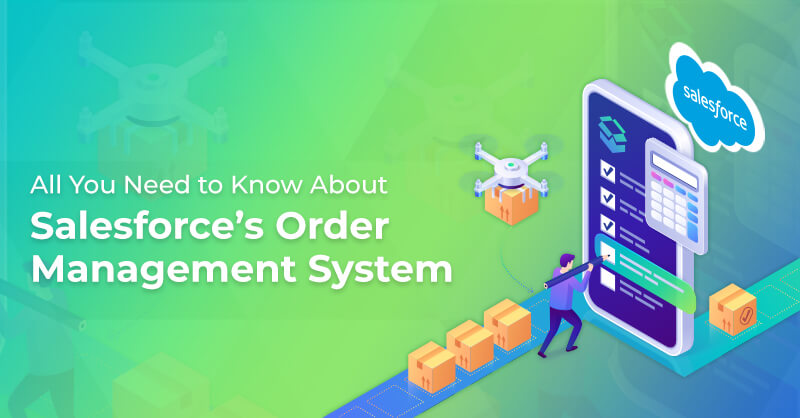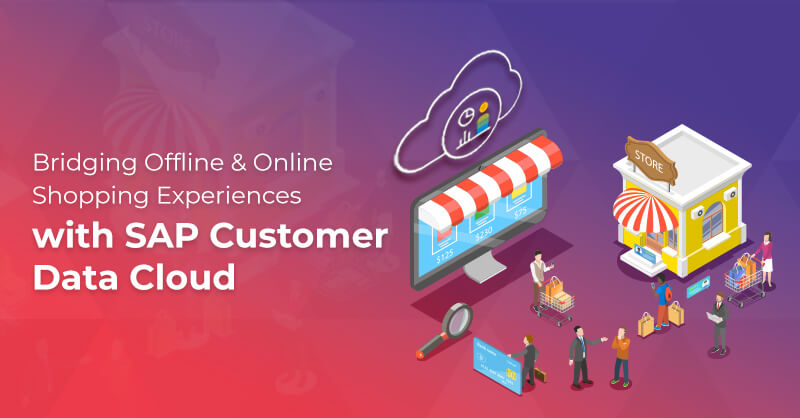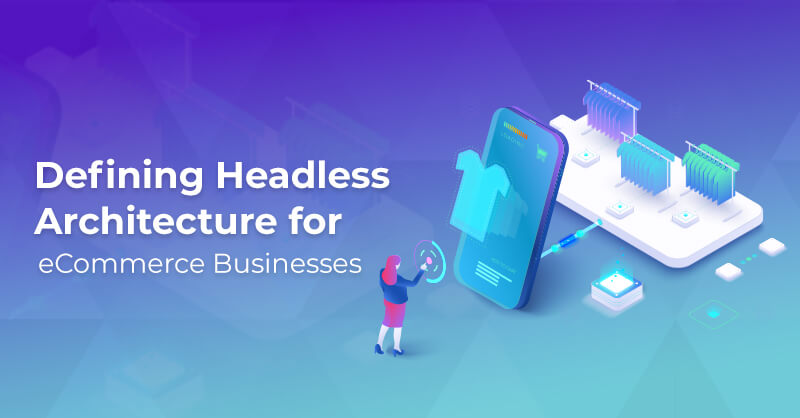A Comparison of HCL Commerce Versions from V9.1.6.0 to V9.1.10.0
Written by Manpreet Kaur
Content WriterIn times of digital transformation, HCL Commerce has emerged as a top eCommerce platform that allows developers to create scalable solutions to power businesses. This unified platform helps business owners to run different business models such as B2C and B2C and deliver a world-class customer experience.
In addition, HCL Commerce has rolled out various version collections to enhance the site features and functionality while streamlining the digital experience. This article documents the differences between the versions of HCL Commerce.

HCL Commerce Version 9.1.10
Released in March 2022, the HCL Commerce Version 9.1.10 brings with it the following updates:
- Ingest Profiles: This powerful new feature enables businesses to fine-tune the behaviour of NiFi connectors. Issue SQL commands and execute custom Java code during the flow of a specific connector, to pre and post-process data before it is indexed.
- Configure Ingest at a Single REST Endpoint: All NiFi connectors inherit a set of configurations such as global attributes and make them available as NiFi flowfile attributes inside NiFi. Using one REST endpoint, add or remove these NiFi capabilities from outside the main NiFi process flow.
- Migrate Elasticsearch Customizations: Migrate custom connectors and NiFi flows to the latest version of HCL Commerce Search, with more options and guidance to make the process easier and faster.
- Support the Authoring and Production Environments in Separate Clusters: In the default Elasticsearch cluster implementation, all nodes have all roles. If one node is busy on data operations and under resource constraints while it also has the master role, it can affect the cluster health, which in turn impacts data availability. To avoid this situation, Elasticsearch Auth and Production clusters can be separated.
- Remote debugging of Query Service: A new remote facility enables developers to see the current state of variables, and leverage code hot swapping to see the changes reflected in the Query server as they develop code.
- Data Integrity Check: Improve the reliability of the Ingest service by checking the health of the Index. The integrity check pipeline counts and compares Elasticsearch documents against the database.
- Store/Marketplace: Host Products from Other Vendors: The Marketplace feature allows designated owners to post products from other vendors. Buyers can filter products by a single or multiple seller name. This feature is available for registered and guest users.
- Product Compare: Shoppers can now compare products on a dedicated screen. They can use this feature to compare features such as price, description, or even customer ratings of your products.
- Ribbon Ads now available for React Store: A ribbon ad is an image overlay that is displayed over the thumbnail image of catalog entries. The image overlay contains text that describes a shared characteristic of the catalog entries, such as Exclusive, Clearance, New, or On Sale to draw the attention of shoppers.
- My Account/Dashboard PI Updates: Customers have an improved My Account page that enables them to edit personal information such as name and address and change the login password for their accounts.
- Kit Details Page: Kits are collections of products that customers can purchase in a single transaction. They differ from bundles in that the products and quantities are fixed. The Business-to-Business Sapphire React-based store now has a kits page that complements the existing bundles feature.
- Remember Me/Persistent Session: Emerald (B2C) React Store customers can leave a shopping session and on returning find their current cart and other details preserved. Define which behaviours can be persisted, and even extend some persistence to guest shoppers who do not have an account.
- Product Listing Page Price Ranges: The Product Listing Page (PLP) has been improved. The price-range for SKUs of a product or a variant are now visible when these items are displayed in the PLP.
- Requisition Lists for B2B React Stores: Requisition lists are lists of items that will be used to create orders at a later date. Customers can create requisition lists of items that they order frequently and use them to periodically re-order the items. They can now use requisition lists in B2B Sapphire React-based stores.
- Marketplace Tool: Marketplaces are new to HCL Commerce for version 9.1.10.0. A variety of new options are available in the Management Center under the Marketplace menu item. For example, Marketplace owners can manage multiple marketplaces as well as sellers, and sellers have options for controlling their own market.
- Page Composer Enhancements: Page Composer has been improved, create default layouts and kits for catalog entry and category pages.
HCL Commerce 9.1.9.0
This version of HCL Commerce was released in January 2022. The below section describes the significant enhancements brought by the latest version of HCL Commerce to the site features and functionality.
- Supports Solr Search Engine: The HCL Commerce version 9.1.9 supports the Solr search engine giving the users a flexible and safe search experience.
- Enhancements to the Transaction Server: It includes optimizing run engine commands such as set-system-property, add-generic-jvmarg, and set-jndi-entry to save time when the Transaction server starts.
- Compatible with Azure Kubernetes Service: The HCL Commerce version 9.1.9 is compatible with Azure Kubernetes Service, allowing users to exploit the capabilities of AKS.
- Multiple Quick Checkout Profile: The Quick Checkout profile page enables the enrolled customers to set billing addresses and shipping addresses separately. The customers can use multiple quick checkout profiles during checkout in the HCL Commerce version 9.1.9.
- Page Composer: The Page Composer contains widgets that help the buyers to get an overview of the products of their choice without manual searching. Main page layouts that can be used for the Page Composer widget are B2B Product Page, Category Landing Page, Home Page, Product Listing Page, and Product Page.
- Multiple Payment: The multiple payment options in React stores allows the users to pay a specific cart amount using different payment modes such as credit card, cash on delivery, and much more.
- Custom Cache: HCL Commerce version 9.1.9 reuses logic and data to enhance the performance of customizations. All the caches are defined in the WebSphere configuration and accessed using DynaCache APIs.
Version 9.1.8.1
- Natural Language Processing (NLP) Profiles: Use an NLP profile to control the preprocessing flow of search terms before executing an Elasticsearch query. In addition, four new languages have been added to the NLP service.
- Converting Pages to Page Composer-Enabled Pages: All pages created prior to HCL Commerce version 9.1.7.0 can be converted to Page Composer-enabled pages.
- Other Updates:

- Thread monitor
- OneTest performance sample script for B2C store
- Elasticsearch performance tuning guide
- Assets tool for asset management
Version 9.1.7.0
- OneDB database Support: HCL OneDB is a cloud-native, high performance scalable database server that manages relational, object-relational, and dimensional databases. Because OneDB is highly compatible with DB2.
- Deployment Improvements:
- The Elasticsearch-based search solution Kubernetes deployment is now supported on Power Linux.
- Oracle Database support for HCL Digital Experience integration.
- HCL Commerce deployment is now supported on Google Cloud Platform (GCP) and Amazon Web Services (AWS).
- Configure Search Results: HCL Commerce Search provides businesses the ability to configure the search results that are displayed to the shoppers while searching for any product or service at the storefront.
- Ingest Status API: A new API has been introduced to allow checking the status of the search index for the specific store post NRT updates.
- Customize Spell Check Correction Suggestions: HCL Commerce Search enables to customize the spellcheck correction suggestions that are displayed at the storefront in case of misspelled search queries.
- Search Profiles for HCL Commerce Search based on Elasticsearch: Search profiles to control the storefront search experience at a page level.
- Serviceability Module: A new tool that enables businesses with troubleshooting data such as traces, settings, or logs from multiple different sources.
- Multiple Shipment: Customers logged in to the Emerald or Sapphire stores can checkout multiple orders for different addresses while choosing different shipping methods for each.
- Customer Service Hub: Many new features are implemented in the Customer Service hub. Customer Service Representatives (CSRs) or Site Administrators can now:
- Add new customers
- Search Orders
- Search Customers
- Shop on behalf of the Customer
- Reset passwords
- Change account details and Status
- Other Updates:
- Page Composer in the storefront
- Access control for the Query service configuration endpoints
- Performance-related search index schema changes
- Recover a corrupted or deleted workspace index
- Component configuration
- Applying patches to NiFi and NiFi Registry
- Tools Management Center tools for Page Composer
- Fine-grained cache invalidation
- NiFi performance optimization
- Search Tool for Merchandisers
HCL Commerce 9.1.6.0
Released in March 2021, the HCL Commerce version 9.1.6.0 rolled out significant website features and functionality changes. The below section describes these changes in detail:
- OneDB Database: The HCL OneDB is a robust, cloud-native database server that controls relational, object-relational, and dimensional databases. The HCL OneDB set contains HCL OneDB Server, HCL OneDB Client SDK, HCL OneDB JDBC, HCL OneDB APIs, and HCL OneDB Explore. The HCL Commerce version 9.1.6.0 has HCL OneDB in a limited beta version. The users can set up and configure the database according to their needs.
- OpenAPI 3.0: HCL Commerce version 9.1.6.0 supports OpenAPI 3.0.
- Search: It offers workspace support for HCL Commerce Search Solution. The site users can make catalog-related changes in a different environment and preview them in the storefront before sending them for approval.
- Use the Search Ingest Service API to extend the default Ingest connectors which help site users to execute data ingestion and transformation tasks.
- Helps you add custom configuration to the multi-dimensional matchmaker. You can use product dimensions such as length, width, and height to execute natural-language searches. You can configure the product dimension pattern in the zookeeper dimensions mode.
- Store: The HCL Commerce Customer Service allows customer service representatives to fix the issues and accept orders. This feature is pre-built in the HCL Commerce Reference Store application and enables the CSRs to do the following:
- Operate customer accounts for B2C and B2B stores.
- Search products using catalog navigation or faceted search that shows product information elaborately.
- Create new customer orders, cancel orders, and view order details.
- Email Templates and Notifications: The HCL Commerce version 9.1.6 Store SDK includes email templates for order confirmation, cancellation, shipment notification, password reset request notifications, and password change notifications.
- Google Analytics Integration: HCL Commerce version 9.1.6 is compatible with Google Analytics 4, giving insight into customer engagement and improving customer experience. Users must have a Google Analytics account with updated configurations.
Conclusion
It is essential for business organizations to prepare themselves for futuristic and customer-centric digital transformation. Royal Cyber helps businesses to survive in the digital landscape by leveraging their presence across multiple channels and gaining a competitive advantage. Contact our certified HCL Commerce developers to know how you can deploy HCL Commerce to enhance business agility and revenue.



